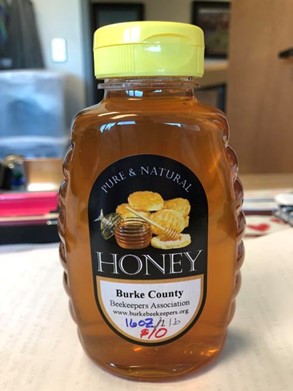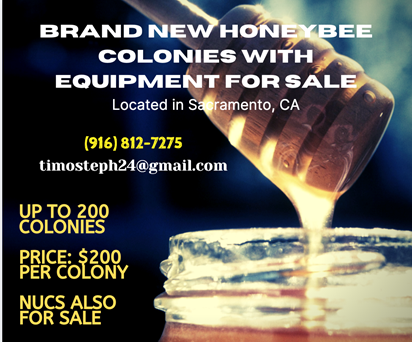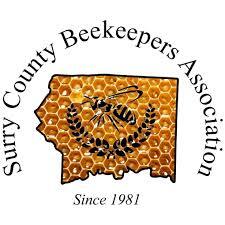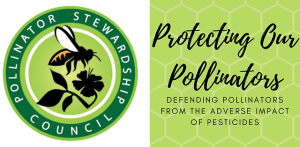Homegrown honey? Maybe, maybe not
The Burke County Beekeepers’ Association is a good source for local honey.
Photo submitted by Donna Teasley/North Carolina Cooperative Extension – Burke County Center
Honey is truly one of nature’s bounties. It’s considered to be an almost perfect food. It can last forever and is used for more than just eating. It requires little attention after it comes out of the hive. It has no additives, can be found almost anywhere, and each jar has its own unique taste of the region in which it is made.
Local honey is what most people are looking for and in most cases, it is readily available at local farmer’s markets and roadside stands. Many folks have a relationship with a local beekeeper and maintain a supply straight from the hive.
But how do you know it is local honey? If you know a beekeeper and can observe his hives, it is a pretty safe bet that your honey came from someone’s backyard down the road. The Burke County Beekeeper’s Association (www.burkebeekeepers.org) is a good resource for local honey, and a phone call to your local Extension office at 828-764-9480 can get you some reliable contacts.
But if you don’t have those resources, how can you tell if your honey is local or even 100 percent pure honey? Much of the commercially sold honey comes from other countries, and those sources sometimes use additives, such as high fructose corn syrup, in their honey. Some of this honey is processed to remove pollen (which is beneficial) and to prevent the honey from crystallizing, which is a natural occurrence in honey and not harmful to the honey. As of 2016, only 29 percent of the honey sold in the U.S. was domestically produced. But in North Carolina, there are labeling laws and some websites you can check out to see if your honey is indeed produced in NC. Visit https://bit.ly/3h862tX for a listing of local honey producers. Also, check the label for a certified NC honey label.
When buying from a retail outlet, the label can provide valuable information about your honey and its origin. The label might have an NC honey producer’s name on it, but look to see if it says “packaged in NC.” If this is the case, the honey could have come from an outside source, but re-packaged once it gets to a commercial honey seller. Graded honey, which is mostly what is found in grocery stores, is almost always foreign honey. It will have the country of origin on the label, but that isn’t always accurate. Honey that has been highly filtered has no pollen left in it, which makes its country of origin untraceable. Some countries have traces of antibiotics in their honey. Another clue is the price. If the price is considerably lower than most other honey, it is probably not pure and is probably from a foreign source. Federal law states that honey is only required to have the weight in ounces and grams listed and the name and address of the producer.
North Carolina guidelines require the name “Honey” on the label and the pollen source may be listed if a significant amount of a specific pollen is present, such as sourwood honey. The name, address and zip code of the producer or the website is required, and the weight in pounds, ounces or grams must be displayed on the lower 30 percent of the label. It is interesting to note that most honey is being sold by the pound nowadays. Another tidbit is that 16 ounces or 1 pound of honey is different from 16 fl. ounces. A pound of honey is not quite a pint.
But, the bees have been generous this year and there’s plenty of good, local, pure honey in Burke County for anyone who wants it. Find a local beekeeper and try some out this year.
Donna Teasley is an Extension agent specializing in consumer horticulture for Burke County. Contact her at 828-764-9480 or donna_teasley@ncsu.edu. The North Carolina Cooperative Extension – Burke County Center is located at 130 Ammons Drive, Suite 2 in Morganton. For more information, visit burke.ces.ncsu.edu.
________________________________________________________________________________










